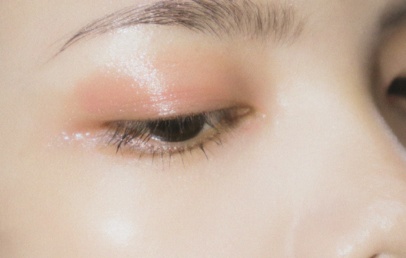
Nature often holds the key to our beauty aspirations, and one such natural wonder is rosemary. Widely known for its culinary uses, this fragrant herb boasts an array of benefits that extend beyond the kitchen. Among its numerous virtues, rosemary has emerged as a champion in promoting hair growth and maintaining hair health.
A Brief Prelude to Rosemary’s Legacy
Rosemary, scientifically known as Rosmarinus officinalis, has been cultivated for centuries for its aromatic leaves and essential oils.
Native to the Mediterranean region, this herb has earned a special place in folklore, medicine, and even religious practices. Its name derives from the Latin words “ros” (dew) and “marinus” (sea), hinting at its natural habitat by the sea and its affinity for thriving in coastal climates.
Nutrient Powerhouse for Hair Health
The secret behind rosemary’s efficacy for hair growth is its rich nutrient composition. This herb is a natural source of antioxidants, vitamins, and minerals that play crucial roles in maintaining healthy hair follicles and promoting growth.
Antioxidant Boost: Rosemary contains antioxidants like rosmarinic acid and carnosic acid. These compounds help protect the scalp and hair follicles from damage caused by free radicals, environmental stressors, and UV radiation.
Improved Circulation: Massaging diluted rosemary oil onto the scalp can help stimulate blood circulation. Improved blood flow brings more oxygen and nutrients to hair follicles, promoting their health and encouraging hair growth.
DHT Regulation: Dihydrotestosterone (DHT) is a hormone linked to hair loss, especially in cases of androgenetic alopecia. Some studies suggest that rosemary extract may help inhibit the activity of 5-alpha-reductase, an enzyme responsible for converting testosterone into DHT.
Vitamins and Minerals: Rosemary contains essential vitamins and minerals such as vitamins A, C, and iron, all crucial for maintaining healthy hair and supporting growth.
Strengthening and Nourishing Hair Strands
Beyond its role in promoting hair growth, rosemary also offers benefits for the overall health and appearance of hair strands:
Reduced Hair Thinning: Regular rosemary-infused products or oils can help strengthen hair strands, reducing breakage and hair thinning.
Enhanced Shine and Luster: Rosemary’s natural oils can add shine to dull hair, giving it a healthier and more vibrant appearance.
Dandruff Control: Rosemary oil has anti-inflammatory and antimicrobial properties that can help combat dandruff and dry scalp issues.
Incorporating Rosemary into Your Hair Care Routine
Integrating rosemary into your hair care routine can be done in several ways:
Rosemary Oil Massage: Dilute a few drops of rosemary essential oil in a carrier oil, such as jojoba or coconut oil. Gently massage the mixture into your scalp and leave it on for at least 30 minutes before washing.
- Rosemary-Infused Products: Look for shampoos, conditioners, and hair treatments that contain rosemary extract or oil as an ingredient.
- DIY Rosemary Rinse: Prepare a rosemary-infused rinse by steeping rosemary leaves in hot water. After cooling, strain the liquid and use it as a final rinse after shampooing.
- Herbal Hair Masks: Combine rosemary with other hair-friendly herbs like nettle and horsetail to create nourishing hair masks.
Cautions and Considerations
While rosemary offers numerous benefits, it’s important to exercise caution:
- Allergies: Some individuals may be sensitive or allergic to rosemary. Perform a patch test before applying rosemary-infused products to your scalp.
- Essential Oil Dilution: Always dilute essential oils before applying them to the scalp. Undiluted essential oils can cause skin irritation.
- Consultation: If you have an underlying medical condition or are on medication, consult a healthcare professional before incorporating new herbal treatments into your routine.
Rosemary’s reputation as an herbal remedy for hair growth is firmly rooted in its rich history and scientific evidence.




